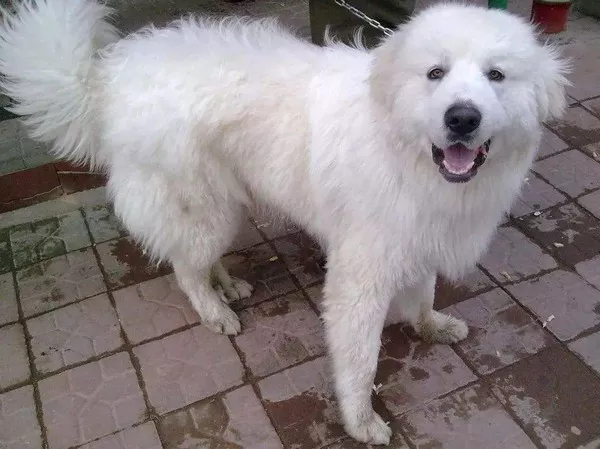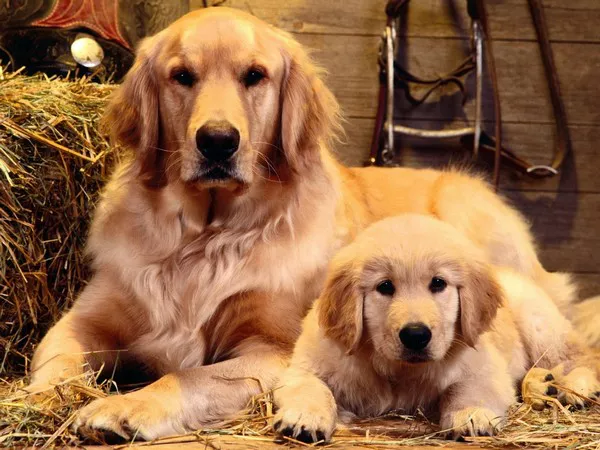Chow Chows are one of the oldest and most recognizable dog breeds, known for their lion-like mane and distinctive blue-black tongues. This unique trait has intrigued many dog enthusiasts and researchers alike. In this comprehensive article, we will delve into why Chow Chows have black tongues, while also exploring their breed characteristics and living habits. This will provide a holistic understanding of these fascinating dogs.
Characteristics of the Chow Chow
Distinctive Physical Appearance
Chow Chows are medium to large-sized dogs with a robust and sturdy build. They have a broad skull and a short, deep muzzle, giving them a dignified and often aloof expression. One of the most striking features of the Chow Chow is its dense double coat, which can be either rough or smooth. The rough coat is more common and features a thick, fluffy outer layer, while the smooth coat is shorter and sleeker. Their fur comes in various colors, including red, black, blue, cinnamon, and cream.
Blue-Black Tongue
The most distinguishing characteristic of the Chow Chow is its blue-black tongue. Unlike most dog breeds that have pink tongues, the Chow Chow’s tongue is a deep blue-black color. This unique feature is present from birth, with the tongue darkening as the puppy matures. The coloration is also found in the gums and the roof of the mouth, making it a consistent trait throughout the breed.
Sturdy and Square Build
Chow Chows have a unique and recognizable body structure. They are compact and square in build, with strong, straight legs that contribute to their distinctive gait. Their hind legs are almost straight, which gives them a stilted walking style. This characteristic build, combined with their dense fur, gives Chow Chows their bear-like appearance.
Temperament and Personality
Chow Chows are known for their independent and reserved nature. They are often described as cat-like due to their aloof demeanor and tendency to be selective about their affections. While they are loyal and protective of their family, they can be wary of strangers and may take time to warm up to new people. Early socialization and consistent training are essential to ensure a well-adjusted and well-behaved Chow Chow.
Living Habits of the Chow Chow
Diet and Nutrition
A balanced diet is crucial for maintaining the health and well-being of a Chow Chow. These dogs require high-quality commercial dog food that meets their nutritional needs. The diet should include a balance of proteins, fats, and carbohydrates, along with essential vitamins and minerals. Owners should be mindful of their Chow Chow’s caloric intake to prevent obesity, as this breed can be prone to weight gain. Regular feeding schedules and portion control are important to keep them in optimal condition.
Exercise Requirements
Chow Chows have moderate exercise needs. They are not as high-energy as some other breeds but still require regular physical activity to stay healthy and prevent boredom. Daily walks and playtime in a secure yard are usually sufficient to meet their exercise needs. Chow Chows enjoy activities that stimulate their mind and body, such as interactive toys and puzzle feeders. However, they are also content with a more relaxed lifestyle and enjoy lounging around the house.
Grooming Needs
Due to their thick double coat, Chow Chows require regular grooming to keep their fur in good condition and to prevent matting. Brushing their coat several times a week helps remove loose hair and reduces shedding. During the shedding season, more frequent brushing may be necessary. Regular grooming sessions also provide an opportunity to check for any skin issues or parasites. Additionally, routine nail trimming, ear cleaning, and dental care should be part of their grooming regimen.
The Mystery of the Blue-Black Tongue
Genetic Basis
The blue-black tongue of the Chow Chow is a unique genetic trait. The exact genetic mechanism behind this coloration is not fully understood, but it is believed to be related to the presence of pigmented cells called melanin. Melanin is responsible for the coloration of the skin, hair, and eyes in many animals, including humans. In Chow Chows, an increased concentration of melanin in the tongue tissues results in the blue-black coloration. This genetic trait is dominant, meaning that it is consistently passed down through generations.
Comparison with Other Breeds
While the blue-black tongue is a hallmark of the Chow Chow, it is not exclusive to this breed. The Chinese Shar-Pei is another breed that commonly has a blue-black tongue. Some other breeds may occasionally exhibit dark spots or patches on their tongues, but the Chow Chow and Shar-Pei are the only breeds where this trait is a standard characteristic. This shared trait has led to speculation about a common ancestry between the two breeds.
Historical Significance
The Chow Chow’s blue-black tongue has historical and cultural significance. In China, where the breed originates, the blue-black tongue was considered a sign of good luck and was believed to ward off evil spirits. This unique feature contributed to the breed’s mystique and appeal, making them highly valued by Chinese nobility. The exact origin of the blue-black tongue remains a subject of fascination and speculation among dog enthusiasts and researchers.
Health Considerations for Chow Chows
Common Health Issues
While Chow Chows are generally healthy, they can be prone to certain genetic and health conditions. Some common health issues seen in this breed include:
Hip Dysplasia: This is a hereditary condition where the hip joint does not fit properly into the hip socket, leading to arthritis and pain over time. Regular veterinary check-ups and maintaining a healthy weight can help manage this condition.
Elbow Dysplasia: Similar to hip dysplasia, this condition affects the elbow joints and can cause lameness and pain. Early diagnosis and treatment are important to improve the quality of life for affected dogs.
Entropion: This condition occurs when the eyelids roll inward, causing the eyelashes to irritate the eye. Surgery may be required to correct this issue and prevent further damage to the eye.
Hypothyroidism: Chow Chows can be prone to hypothyroidism, a condition where the thyroid gland does not produce enough hormones. This can lead to weight gain, lethargy, and skin problems. Medication and regular monitoring can effectively manage this condition.
Preventative Care
Preventative care is essential for maintaining the health of a Chow Chow. Regular veterinary visits are crucial for monitoring their overall health and catching any potential issues early. Vaccinations, parasite control, and dental care should all be part of their routine healthcare. Dental hygiene is particularly important, as dental disease can lead to other health problems if left untreated. Brushing their teeth regularly and providing dental treats or toys can help maintain their oral health.
See Also: Why is My Chow Chow Not Fluffy?
Genetic Testing and Responsible Breeding
Due to the potential for genetic health issues, it is important for prospective Chow Chow owners to choose a reputable breeder. Responsible breeders will conduct genetic testing on their breeding dogs to screen for hereditary conditions. This helps reduce the risk of passing on genetic disorders to the puppies. When purchasing a Chow Chow puppy, ask the breeder about the health history of the parents and request documentation of any health screenings or genetic tests that have been performed.
Lifespan and Longevity
With proper care and attention to their health, Chow Chows can live long and fulfilling lives. The average lifespan of a Chow Chow is around 8-12 years, although some individuals may live longer. Providing a balanced diet, regular exercise, preventative healthcare, and a loving environment all contribute to their longevity.
Enhancing the Well-Being of Chow Chows
Socialization and Training
Chow Chows can be aloof and independent, making early socialization and consistent training essential. Exposing them to various people, places, and experiences from a young age helps them become well-adjusted adults. Positive reinforcement training methods work best for Chow Chows, as they respond well to rewards and praise. Building a strong bond through training and socialization enhances their confidence and reduces the likelihood of behavioral issues.
Creating a Comfortable Living Environment
Chow Chows are adaptable and can thrive in various living environments, from apartments to houses with yards. However, they do best in a calm and stable environment where they can feel secure. Providing a comfortable and quiet space for them to retreat to is important, especially if they are feeling overwhelmed or stressed. Regular routines and a consistent schedule help Chow Chows feel more secure and confident in their environment.
Mental Stimulation
Chow Chows are intelligent and benefit from activities that challenge their minds. Interactive toys, puzzle feeders, and training sessions can provide mental stimulation and prevent boredom. Engaging their minds through new experiences and learning opportunities keeps them mentally sharp and content. Regular playtime and activities that tap into their natural instincts, such as scent games or agility courses, can also be beneficial.
Conclusion
Chow Chows are a unique and fascinating breed with a rich history and distinctive characteristics. Their blue-black tongues set them apart from other dogs and have intrigued dog lovers for generations. While they are generally healthy, Chow Chows can be prone to certain genetic health issues, making preventative care and responsible breeding practices essential. By providing a balanced diet, regular exercise, proper grooming, and a loving environment, owners can ensure that their Chow Chows lead healthy and fulfilling lives.
Understanding the reasons behind the Chow Chow’s unique blue-black tongue adds to the appreciation of this ancient and noble breed. Whether you are a seasoned Chow Chow owner or considering adding one to your family, these dogs offer a blend of independence, loyalty, and dignity that is truly special. With proper care and attention, a Chow Chow can be a loyal and loving companion for many years to come.
Related Topics:
























